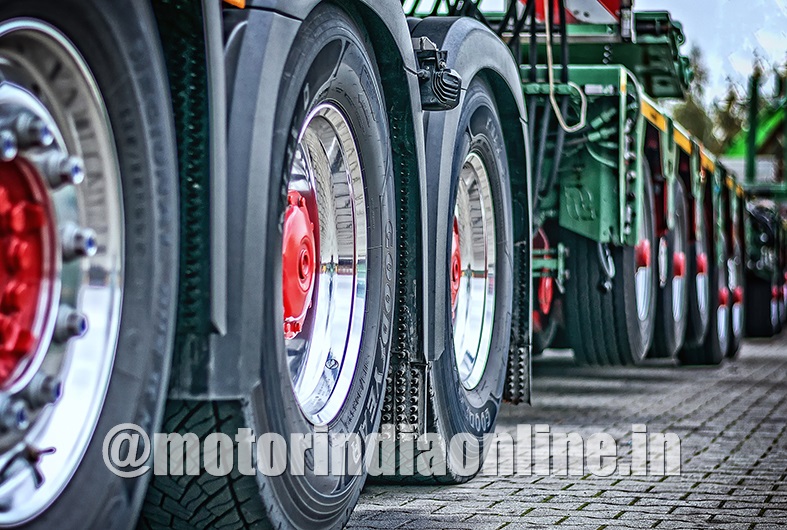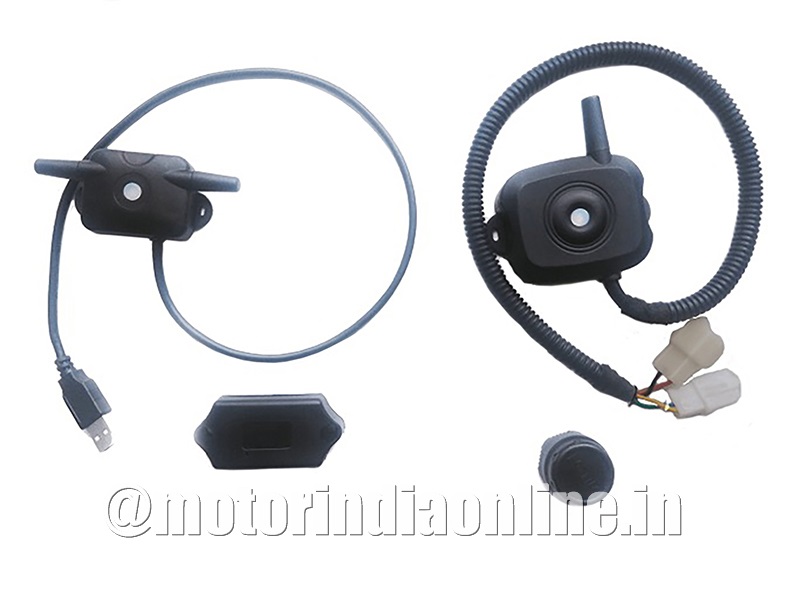Did you know that if tyres are under-inflated or over-inflated, fuel costs can be upto 2% higher and reduces the tyre life by upto 25%?
For fleet companies, tyres have much bigger financial impact than we can imagine. These business owners want to reduce the daily operational costs and remove any anomalies or risks associated with the vehicle and improve efficiency & productivity.
Tyres are the most overlooked auto parts owing to their constant contact with the road surface amidst ever-changing weather conditions.
Safety, cost and compliance are three of the major factors fleets need to consider when determining their choice of tyres and when to replace them. Tyre wears down over time, but some other problems may cause them to wear out faster and unevenly, costing more money. Tyre replacement can be expensive depending on the tyre size, tyre brand and the type of the vehicle.
According to sources, a truck tyre has a lifespan of 50,000 km to 60,000 km compared to a life span of 40,000 km to 50,000 km for a car tyre and this lifespan can considerably improve with a proper tyre pressure monitoring system (TPMS).
Impact of tyre pressure on fuel economy
Maintaining a healthy tyre pressure has its direct effect on your fuel economy. If your vehicle’s tyre pressure is incorrect, more fuel will be used than necessary. If your tyre pressures are incorrect you may find your car pulling off to one side, and this could have an effect on the wear of the tread on your tyres leading yet again more, unnecessary expense. Having your tyres inspected and your suspension checked will prevent your vehicle from turning into a potential danger on the roads, putting not just yourself at risk but others.
Over-inflation of tyres has its own shortfalls. In fact, over-inflation of tyres can have more harming effects. When the tyre pressure exceeds the manufacturer’s optimum tyre pressure recommendation, tyres wear out faster because the center of tyres wear out quicker than the edges.
While over-inflated tyres have no proven positive impact on fuel efficiency, it is a huge risk for drivers since over-inflated tyres are stiffer and bend lesser than they should, causing smaller point of contact on the road. This, in turn, can result in loss of traction, spinning and crashing. Moreover, the over-inflated tyres have higher chances to burst on bumpy roads or on hot weather.
Therefore, maintaining a recommended tyre pressure ensures that your vehicle is in a safe condition for you, your family and other drivers on the road. A higher number of tyre failures also affect your business economy.
When your vehicle’s tyre pressure is maintained at the correct level, it will also experience less drag. As a result, it will use less fuel, saving you money and reducing your CO2 emissions.
The AssetTrackr solution
AssetTrackr has been providing a premium fleet management solution along with fuel tracking, to efficiently manage your fleet and to monitor driver activities to prevent any vehicle misuse. The fleet management solutions can help decrease costs and improve the overall productivity of your business. We realized the key to savings, efficiency and safety you need to optimize tyre pressure as well by installing a tyre pressure monitoring system on your vehicle. The tyre pressure monitor keeps drivers informed of the exact pressure of their equipment tyres so they can be kept at an optimal pressure level to reduce wear and tear.
A good tyre pressure monitoring system provides you with real-time tyre pressure data, to ensure that your tyres (and your vehicle) perform at an optimal level. A direct pressure sensor is installed on all wheels. If the tyre pressure goes up or down abruptly, there is a wireless signal that sends the monitoring data to a centralized controlled interface. From there it is transmitted directly to the interface that is easily accessible inside the driver’s cabin. The sensor in each wheel generates a timely warning and can alert the driver instantly if the pressure falls below the recommended level, for instance, due to a quick air loss caused by a puncture. The driver will also know about the gradual air loss over time.
Key benefits
TPMS notifies you when your vehicle’s tyre pressure is low or is going flat. By helping you maintain proper the tyre pressure TPMS can enhance your safety on the road by improving your vehicle’s handling, decreasing tyre wear, reducing braking distance and bettering the fuel economy. Under-inflated tyres can be dangerous. They can cause strange, erratic drive patterns at high speeds.
A tyre pressure monitoring system keeps an eye on tyre inflation continually, for maximum safety in everyday driving situation. You can see the tyre pressure information in real time using the interface easily accessible over standard browsers. It just requires a normal internet connection. The data is stored on cloud so you don’t have to worry about backup, data loss or anything else.
In fact, the entire solution requires no software to be installed at the customer location. The remote tracking capabilities are top-notch and you would never miss any important data point. You get alerts each time the tyre pressure falls below a certain threshold. This is a high-level real-time tyre performance solution, right at your fingertips.
The tyre pressure monitoring system also adds an extra layer of the much-needed security. Let’s say the vehicle is parked in a remote area, if someone tries to fiddle with the tyres, an anti-theft signal would be transmitted to the driver on the interface. This effectively means you can rely on the TPMS for protection against theft. The system ensures that optimal pressures are maintained. With the help of tyre monitoring in real-time, you never have to see a deflated tyre again. Naturally, it helps to increase the life of each tyre.
TPMS is a difficult system in many ways, but many of fleet business owners’ problems could be fixed – all you need is an automated tyre pressure monitoring system that helps you keep the overall operation efficient and fuss-free for the industrial operations, large commercial fleets, or even personal vehicles. That is why a good tyre pressure monitoring system is recommended which will increase fuel savings, improve daily vehicle operations, reduce inefficiencies and adds a lot of comfort to your life.


